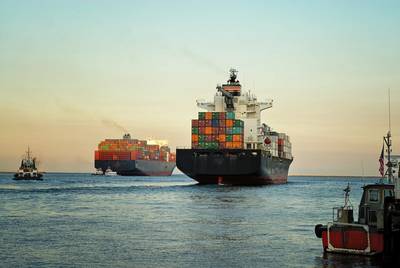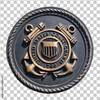US Continues to Crack Down on Maritime Pollution Crimes Despite COVID-19
United States Department of Justice’s steadfast protection of U.S. waters equates to criminal charges and massive fines
The United States has a long history of holding companies and individuals accountable for violating environmental laws and regulations, including the International Convention for the Prevention of Pollution from Ships (MARPOL). With the 40th anniversary of the passage of the Act to Prevent Pollution from Ships (APPS), which implements MARPOL, United States government agencies continue to prioritize the protection of oceans and waterways from pollution. Although the number of environmental enforcement actions initiated by the Environmental Protection Agency (EPA) between 2006 and 2018 has steadily decreased, Department of Justice (DOJ) enforcement actions, in collaboration with the United States Coast Guard (USCG), have remained steady despite the current COVID-19 pandemic. In fact, not only has DOJ taken an active interest in prosecuting United States-based companies, but DOJ has also exercised its jurisdictional powers to prosecute foreign-flagged vessels, their operators, and in some cases, third-party vessel managers for violations of environmental laws and regulations.
The United States government continues to focus on Clean Water Act and APPS violations
As DOJ and other United States government agencies continue to focus on prosecuting individuals and companies taking shortcuts that pollute oceans and waterways, vessel owners and operators should be aware of the common criminal violations that are actively being pursued by DOJ and the USCG.
- APPS violations (33 U.S.C. § 1901 et seq.): DOJ often pursues violations of APPS, which prohibits the discharge of oil, oily water or garbage into the navigable waters of the United States. This statute requires companies, and their crew members, to maintain accurate log books and to record all transfers and overboard discharges of oil, oily water and garbage, regardless of where the transfers and discharges occurred. This, in turn, provides DOJ with a broad jurisdictional hook against all foreign vessel owners and operators who enter United States waters with record books that fail to disclose all transfers of oil and oily water on a vessel and all discharges of oil, oily water or garbage into the ocean. Companies should ensure that crew members are properly trained on how and when to record all such transfers and discharges, in addition to the consequences for intentionally omitting or failing to properly record accurate information in the log books.
- Falsification of records (8 U.S.C. § 1519): If a company or its crew members knowingly alter, destroy, mutilate, conceal, cover up, falsify or make a false entry in any record, document or tangible object with the intent to impede, obstruct or influence an investigation, the company and/or its crew members could face criminal charges. This crime often involves companies, or its crew members, excluding—and often concealing—information or actions taken on a vessel. It often also involves companies, or its crew members, making false or inaccurate entries in records, log books or documents in order to conceal potentially illegal activity. To avoid liability, companies should ensure that crew members are properly trained to include all relevant information in all records, log books or any other documents and that crew members understand the consequences of improperly altering or concealing information.
- False statements (18 U.S.C. § 1001): To the extent that any false statements are made to the USCG inspectors during a Port State Control Inspection or any other routine inspection, including concealing material information, a company and its crew members could face criminal charges for making these statements. Companies should ensure that crew members understand that making false statements during USCG inspections can result in criminal liability, even if the crew member making the false statement was not directly involved in the underlying potentially illegal conduct.
- Obstruction of justice (8 U.S.C. § 1505): If a company, its employees or its crew members attempt to threaten, influence, obstruct or impede a USCG Port State Control Inspection or a government agency’s investigation, DOJ may consider charging the company, its employees and/or its crew members with obstruction of justice. This frequently arises when senior crew members direct others to provide false information to the USCG or to DOJ. Companies should ensure that crew members understand the importance of being cooperative during these investigations and that crew members avoid proactively concealing and/or destroying information, documentation and other evidence of potential wrongdoing.
- Ports and Waterways Safety Act (46 U.S.C. § 70021 et seq.): DOJ has also focused on violations of the Ports and Waterways Safety Act. Whenever there is a hazardous condition either on a vessel or caused by a vessel, the owner, agent, master, operator or person in charge must immediately notify the nearest USCG office and submit a written report. It is important to note that “hazardous condition” has been defined broadly. For example, where excessive amounts of oil or oily water have been found in a vessel’s machinery spaces, especially in areas that are populated with electrical wires, DOJ may consider this to be a hazardous condition that should be reported to the USCG. Companies should ensure that crew members are properly trained on what may constitute a “hazardous condition” and encourage reporting of such conditions to the USCG.
- Clean Water Act violations (33 U.S.C. § 1321): Although less common, to the extent that a vessel is involved in the pollution of the navigable waters of the United States, the waters of the contiguous zone, or the ocean, DOJ may charge a company and its crew members, with a Clean Water Act violation. Of particular note, a company and its crew members may face criminal charges for misconduct that occurs within the 200-mile-wide exclusive economic zone. If a company pleads guilty for this violation, the company could potentially face additional enforcement actions with the EPA and debarment, including possible debarment from participating in certain government contracts. Because of the serious long-term implications of this charge, companies should ensure that all discharges of oil or oily water—even if the discharge is accidental—are properly reported to the relevant government agencies and properly recorded in the applicable log books.
Criminal liability is not limited to vessel owners
Current enforcement trends illustrate that vessel owners, operators, technical managers and individual crew members can be held liable for environmental crimes. Although a rarity, members of a company’s board of directors and officers can also be held liable for environmental crimes if the director and/or officer had knowledge of the violation, had the authority and capacity to prevent the violation based on their responsibilities and corporate positions, and failed to prevent the violation. It is also important to note that if the vessel’s owner is affiliated with a parent company, the parent company may also face criminal liability depending on the amount of control the parent company exercises in the operation of the vessel and the management of the crew members.
Notable recent environmental crime cases
Below are a few notable examples of recent environmental crime cases DOJ has actively pursued.
- United States v. Interorient Marine Services Ltd., 18 Cr. 366 (W.D.L.A 2018): The defendant corporation, operator of the tanker Ridgebury Alexandra Z, was charged with APPS violations for failing to maintain an accurate oil record book and for bypassing the oily water separator (OWS), causing thousands of gallons of oily water to be discharged into the ocean. The company was fined $2 million and required to implement a comprehensive environmental compliance plan during the four-year probation term. Of particular note, the owner of the vessel was not charged with any criminal violations because Interorient Marine Services Ltd. managed the vessel and the crew members. The company was also completely independent and not a part of the corporate structure of the ship owning company.
- United States v. D’Amico Shipping Italia S.P.A., 19 Cr. 284 (D.N.J. 2019): The defendant company, owner of Cielo di Milano, an oil tanker, was charged with violating APPS for failing to maintain an accurate oil record book. Two of the crew members directed discharges of machinery space bilge water and oily mixtures directly into the ocean and knowingly included false entries in the log book in an attempt to conceal the discharges. The company was fined $4 million and required to implement a comprehensive environmental compliance plan during the four-year probation term.
- United States v. Chartworld Shipping Corporation, Nederland Shipping Corporation and Vasileios Mazarakis, 19 Cr. 58 (D. Del. 2019): The defendant companies, the owner and operator of the refrigerated cargo ship Nederland Reefer, were charged with an APPS violation for failing to maintain an accurate oil record book and a Ports and Waterways Safety Act violation for failing to notify the USCG of a hazardous condition on the vessel. The defendants were fined $1.8 million ($900,000 each) and required to implement a comprehensive environmental compliance plan during the four-year term of probation. DOJ also brought charges against the chief engineer for his participation in bypassing the OWS, resulting in the discharge of oily bilge water into the ocean, and for his failure to accurately record the discharges in the oil record book. He received a one-year term of probation after pleading guilty to APPS violations.
- United States v. Princess Cruise Lines Ltd., 16 Cr. 897 (S.D. Fla. 2019): In December 2016, the defendant pleaded guilty to conspiracy, obstructing justice and APPS violations for deliberately dumping oil-contaminated waste from one of its vessels. The company was fined $40 million and required to implement an environmental compliance plan during the five-year term of probation. In June 2019, the defendant was fined an additional $20 million, and the probation term was extended three additional years after the defendant admitted to violating the probation terms.
- United States v. Misuga Kaiun Co. Ltd., 20 Cr. 103 (M.D. Fla. 2020): The defendant company, the operator of the bulk carrier Diamond Queen, was charged with an APPS violation for failing to accurately record multiple overboard discharges of oily bilge water from April 2019 until May 2020. The company was fined $1.5 million and required to implement a comprehensive environmental compliance plan during the four-year probation term. The government also brought a single APPS charge against the chief engineer for his failure to maintain an accurate oil record board. He was sentenced to a one-year term of probation after pleading guilty.
Robust compliance programs and proper training are key to avoiding liability
Companies are often content with implementing boilerplate compliance procedures and requiring seafarers to obtain training and proper licensure through third-party companies. As illustrated by recent DOJ enforcement actions, boilerplate compliance procedures do not necessarily shield a company, the operator of a vessel or crew members from criminal liability and massive fines. To limit risk exposure, it is imperative that companies recognize the importance of creating and implementing robust compliance programs and ensuring that all crew members receive proper training. Companies should consider the following when analyzing pre-existing compliance programs:
- Equipment updates: Companies must ensure that all equipment, like the OWS, are functioning properly, maintained regularly and replaced when necessary. Companies must also ensure that crew members are properly trained on how to use the equipment and understand the consequences of discharging oil, oily water and garbage into the ocean.
- Enhanced compliance training: Companies must ensure that all crew members are properly trained before crew members commence their duties onboard a vessel. Companies should consider developing and implementing shore-based training programs and onboard refresher training programs.
- Increased shore-side oversight: Companies should implement a robust monitoring system, including internal audits, which will enable the company to detect gaps in the compliance program and to detect whether crew members are complying with environmental laws and regulations. Companies should also ensure that crew members are providing regular and accurate reports, especially reports relating to bilge water levels, incinerator usage, OWS usage and garbage storage levels and that crew members are recording accurate information in the vessel’s log books.
- Whistleblower hotlines: Companies should ensure that there is a proper mechanism in place for individuals to report environmental crimes anonymously.
Looking forward
Although the COVID-19 pandemic has significantly impacted United States government investigations, the USCG has continued its inspections of vessels docking at United States ports. If a vessel and its crew members are detained, it is important to remember that (a) an attorney should be retained immediately; (b) all relevant documents and records should be preserved; (c) an internal investigation should be conducted; and (d) all crew members should be encouraged to cooperate and refrain from providing false information to the United States government. As the USCG continues to conduct inspections and potentially detain vessels and crew members in connection with suspected environmental crimes, it is imperative that companies, ship operators and ship managers proactively analyze preexisting compliance programs and ensure that crew members are adhering to all environmental laws and regulations in order to avoid costly mishaps, reputational harm and potential debarment.
The Authors
Doreen Rachal and Alexander Kellermann are white collar crime lawyers with international law firm Sidley.
Authors' note: The views expressed in this article are exclusively those of the authors and do not necessarily reflect those of Sidley Austin LLP and its partners. This article has been prepared for informational purposes only and does not constitute legal advice. This information is not intended to create, and receipt of it does not constitute, a lawyer-client relationship. Readers should not act upon this without seeking advice from professional advisers.














